Producing Compost in Zone 3
nutsaboutflowers
12 years ago
Related Stories

GARDENING GUIDESGet on a Composting Kick (Hello, Free Fertilizer!)
Quit shelling out for pricey substitutes that aren’t even as good. Here’s how to give your soil the best while lightening your trash load
Full Story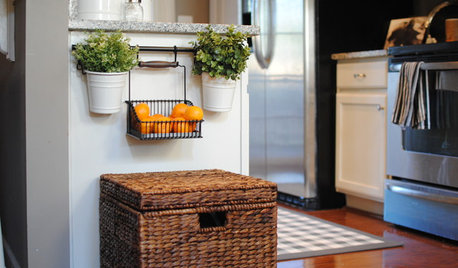
KITCHEN STORAGESmart Storage for Fresh, Tempting Produce
Keep fruits and veggies in easy reach with baskets, refrigerated drawers and cabinet pullouts, to stay healthy all winter long
Full Story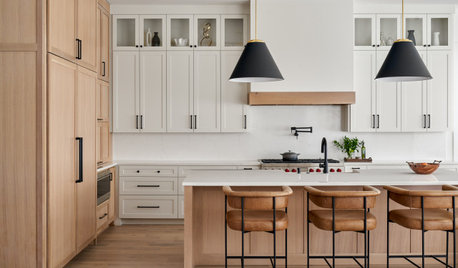
KITCHEN DESIGNStash It All: Know the 3 Zones of Kitchen Storage
Organize storage space around your kitchen’s main activities for easier cooking and flow
Full Story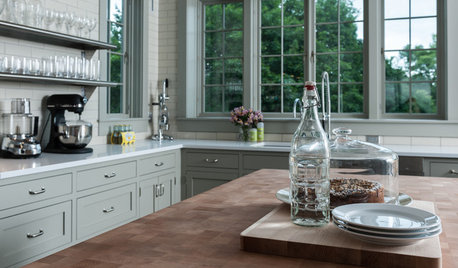
MOST POPULARKitchen Evolution: Work Zones Replace the Triangle
Want maximum efficiency in your kitchen? Consider forgoing the old-fashioned triangle in favor of task-specific zones
Full Story
KITCHEN WORKBOOKNew Ways to Plan Your Kitchen’s Work Zones
The classic work triangle of range, fridge and sink is the best layout for kitchens, right? Not necessarily
Full Story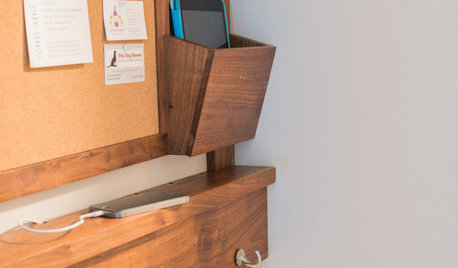
THE HARDWORKING HOMEA New Drop Zone Keeps the Clutter at Bay
The Hardworking Home: A clever wall-mounted station for keys, phones and more helps a family stay organized
Full Story
BATHROOM DESIGN7 Reasons to Give Your Bath Zone a Living Room Vibe
With a few living room–like touches, you can transform your bathroom into a practical, relaxing retreat that’s overflowing with personality
Full Story
HOUZZ TOURSMy Houzz: Home Full of Boys Achieves Order and Inspiration
A 3-month overhaul produces an organized and inviting space fit for this Florida family of 9
Full Story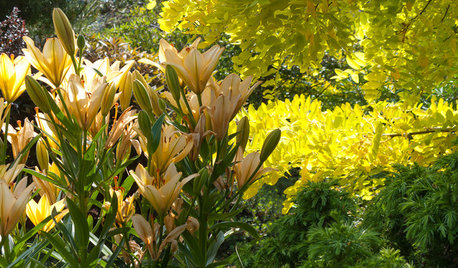
GARDENING GUIDESGreat Garden Combo: 3 Wonderful Plants for a Deer-Resistant Screen
Protect your privacy and keep deer at bay with a planting trio that turns a problem garden area into a highlight
Full Story
GARDENING FOR BUTTERFLIES3 Ways Native Plants Make Gardening So Much Better
You probably know about the lower maintenance. But native plants' other benefits go far beyond a little less watering and weeding
Full StorySponsored
More Discussions


Konrad___far_north
don555
Related Professionals
Chattanooga Landscape Architects & Landscape Designers · Manhattan Beach Landscape Architects & Landscape Designers · Roosevelt Landscape Architects & Landscape Designers · McKinney Landscape Contractors · Cupertino Landscape Contractors · Edwardsville Landscape Contractors · Pleasant Hill Landscape Contractors · West Chester Landscape Contractors · Cincinnati Window Contractors · Arroyo Grande Window Contractors · Baker Window Contractors · Calabasas Window Contractors · Graham Window Contractors · Muttontown Window Contractors · Westmont Window ContractorsnutsaboutflowersOriginal Author
bluegoat_gw
ljpother
bdgardener
luckygal
northspruce
weeper_11
bdgardener
nutsaboutflowersOriginal Author
nutsaboutflowersOriginal Author
mytime
bdgardener
savona
marciaz3 Tropical 3 Northwestern Ontario
weeper_11
nutsaboutflowersOriginal Author
Konrad___far_north
weeper_11